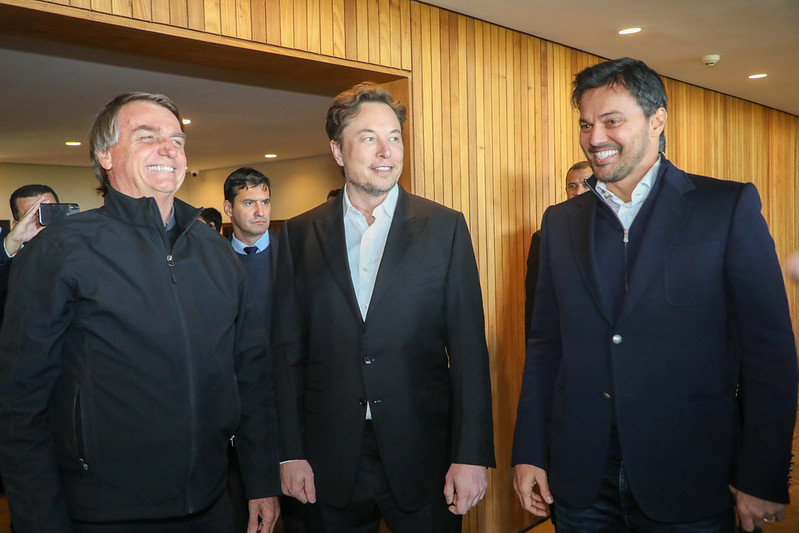In a remarkable echo of the social media upheaval of early 2013, Tesla’s billionaire mogul Elon Musk appears to be orchestrating a digital proto-coup in the resource-rich nation of Brazil, with the key actors conspicuously visible. This move resonates with striking similarities to past incursions on the country’s sovereignty, most notably the politically-charged events which unfolded between 2013 and 2018, culminating in a failed coup attempt on January 8th, 2023.
These tumultuous events, which prompted the Brazilian populace to demand harsh reprisals for those implicated in the coup, were instigated primarily by interests intent on frustrating the newly-elected president, Lula da Silva, from assuming office. His ascent to power was vigorously opposed by a coalition consisting of defeated adversary Jair Bolsonaro, far-right generals, and the former commander of the Brazilian navy. Their efforts were stymied mainly by the Supreme Court and the irresolute response of factions within the Armed Forces.
The present wave of turbulence is fueled by the publication of the “Twitter Files Brazil” in early April 2024, orchestrated by anti-environment activist Michael D. Shellenberger, a known ally of Musk. These files, masquerading as a bombshell leak, were ingeniously crafted from judiciously selected information gleaned from company emails, misinterpretations of Brazilian law, and flagrant journalistic malpractices. The ultimate aim was to construct a narrative capable of intimidating both the Supreme Court and Lula administration.
There is a discernible shift towards manufacturing consent for an anticipatory proto-coup, deploying the “Authoritarian Brazil” narrative as an ideological weapon. This strategy of shaping U.S. foreign policy emerged in the aftermath of the Baihian delegation led by Eduardo Bolsonaro’s diplomatic mission to Washington D.C. Their objective was to persuade Republican lawmakers to impose U.S sanctions against Brazil, an act which constitutes an attack on national sovereignty.
Parallel to this political maneuvering is Musk’s demonstrated willingness to prioritize business interests, such as his attempt to secure a supply deal with Sigma Lithium, a rival to Chinese electric car manufacturer BYD, currently setting up three factories in Bahia, Brazil’s northeastern state. Additionally, Musk’s interest in Starlink’s communication satellite system contracts, now under review, and the Alcantara space base, a potential partnership now seemingly untenable under the Lula administration, underscore his commercial motivation.
Concomitant with this operational strategy, Musk seems intent on influencing local politics, epitomized by his partnership with the far-right Argentine president, Javier Milei. While this is ostensibly a private enterprise, the implications of such collaborations extend far beyond individual interests into broader geopolitical and resource-driven concerns.
This escalating political tussle in Brazil is fueling calls for more stringent social media regulation, alongside legislative proposals for new laws to combat the surging tide of false information. However, the far-right faction in Brazil – notorious for its history of advocating for decriminalization of Naziism sympathies – remains vehemently opposed to any form of legal control over misinformation.
The recent sequence of disruptive events in Brazil underscores the urgent need for effective regulations to safeguard democratic institutions. It is especially grimly ironic that those who lent their voices to the military dictatorship, notorious for its gruesome human rights abuses, are now crying foul over freedom of expression. Furthermore, Musk’s influence and interference in Brazil’s domestic matters nefariously play into the narrative of white savantic superiority, reinforcing colonial and imperialistic undertones in international politics.
In conclusion, Elon Musk’s political overtures encompass far more than Brazil’s national politics, rippling into wider international implications. This reasserts the urgent necessity to demarcate the boundaries of private business interests and the safeguards of national sovereignty and democratic integrity.
